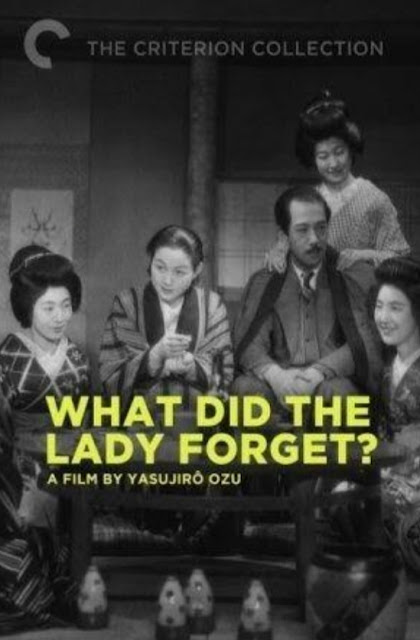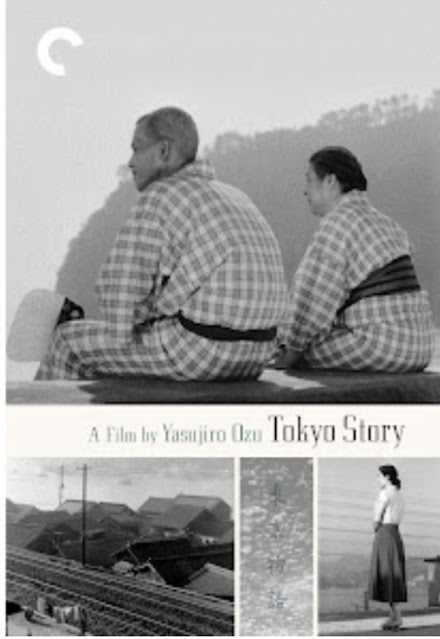Available on YouTube with English Subtitles
Prior Films by Yasujiro Ozu I have posted upon
Tokyo Story - 1953
There Was A Father - 1952
The film tells the story of Komiya (Chishu Ryu), a middle-class professor who lives a comfortable but somewhat uneventful life with his strict and traditional wife, Tokiko (Yoshiko Kuga). One day, Komiya's niece, Setsuko (Sumiko Kurishima), comes to visit from Osaka. Setsuko is a liberated young woman who smokes in public and has a modern outlook on life. Tokiko is initially disapproving of Setsuko's behavior, but she eventually begins to soften towards her.
Meanwhile, Komiya is feeling restless and bored in his marriage. He tells Setsuko that he has to go on a weekend golfing trip to Izu, but he actually plans to spend the time with a geisha. However, he changes his mind at the last minute and decides to go home instead.
When Komiya arrives home, he finds that Tokiko has left. She has left a note saying that she is going to visit her parents in the countryside. Komiya is confused and upset. He doesn't know why Tokiko left, or when she will be back.
Komiya spends the next few days trying to figure out what happened to Tokiko. He talks to her friends and family, but no one seems to know where she is. He eventually realizes that Tokiko left because she was unhappy in their marriage. She felt that he was taking her for granted, and that he didn't appreciate her.
Komiya finally realizes that he needs to make some changes in his life. He needs to be more attentive to Tokiko and show her how much he loves her. He also needs to start living his own life and not just the life that she wants him to live.
In the end, Tokiko returns home and they reconcile. However, the film ends with a question mark, suggesting that their relationship is still in flux.
What Did the Lady Forget? is a complex and nuanced film that explores a variety of themes, including marital relations, gender roles, and social change. It is a beautifully made film with a timeless message.
I very much enjoyed the depiction of the visit of the husband and his niece to a geisha house and the visit of the wife and her friends to a Kubiki Theater. The conversations of the wife with her friends gives us a look into how upper-class Japanese women looked upon marriage in the 1950s. Plus it was fun to seem them banter with each other. The niece represents perhaps the emerging post war Japanese woman.







